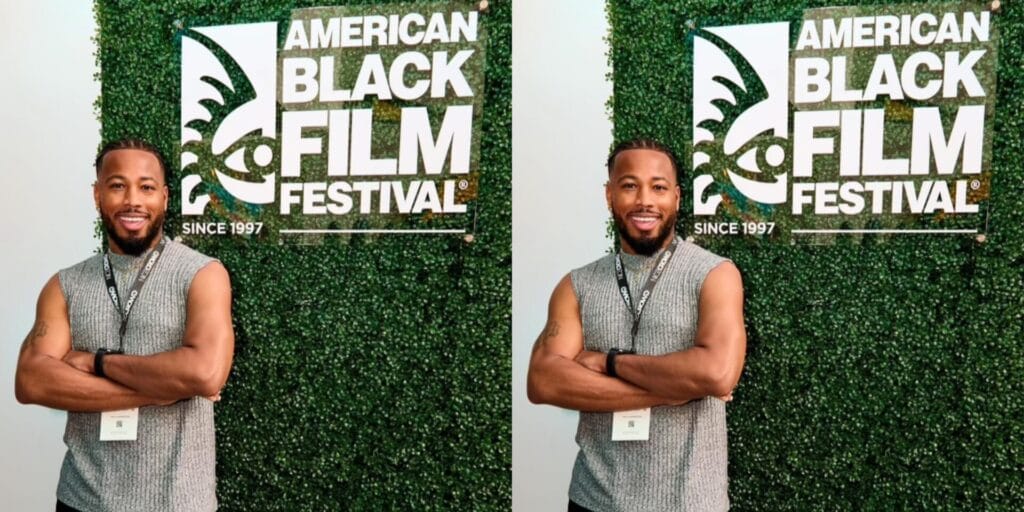By: Pierre Phipps, Contributing Writer
The American Black Film Festival (ABFF) has always been a beacon of excellence, highlighting the best in Black cinema and television. This year, I had the distinct honor of attending ABFF as a GLAAD ambassador, an experience that not only deepened my appreciation for the festival but also underscored the importance of intersectionality in the fight for representation.
Walking into ABFF, I was immediately struck by the palpable energy and excitement that filled the air. Filmmakers, actors, writers, and fans converged, united by a shared love for storytelling and a commitment to amplifying Black voices. As a GLAAD ambassador, my personal mission was to help bridge the gap between LGBTQ+ advocacy and the celebration of Black culture, ensuring that the narratives at the festival were as diverse as the community it serves.
One of the highlights of my time at ABFF was the panel discussions. These conversations featured stars like Nia Long, Issa Rae, Maegan Good, and more. However, a standout panel for me was “Pitch Perfect: Promoting Yourself & Connecting with Others,” led by a dynamic Black queer man by the name of Austyn Biggers. His insights into the industry, coupled with his personal journey, provided invaluable lessons on self-promotion and networking. This panel was particularly inspiring, emphasizing the importance of authenticity and resilience in a competitive field.
As I listened to these industry insiders, I was reminded of the power of visibility. Seeing oneself reflected in the media is not just about validation, it’s about survival. For many LGBTQ+ individuals, especially those from marginalized communities, representation can mean the difference between isolation and acceptance. ABFF’s commitment to showcasing a diverse array of stories is a testament to its role as a catalyst for change.
My experience was further enriched by the films themselves. Each screening was a celebration of creativity and resilience. I was particularly moved by “The Lost Holliday,” a film that featured a cast of Black queer characters which starred and was produced by Jussie Smollett. The film showcased fatherhood in a way I had never seen before on screen. I laughed, I got angry, and I even shed a tear while watching. It was moments like these that reaffirmed my belief in the transformative power of storytelling.
The festival also included a comedy show that featured a hilarious performance by Black queer comedian Anthony Oakes. Coming from a family of stand up comedians, I didn’t know how well the audience was going to take his comedy. But bias aside, his set was by far my favorite. His set was not only entertaining but also insightful, weaving in themes of identity and acceptance with humor and grace. This performance was a reminder of the multifaceted nature of the LGBTQ+ experience and the importance of laughter and joy in our narratives.
Beyond the panels and screenings, ABFF provided numerous opportunities for networking, collaboration, and celebration. These events gave me lots of opportunities to run my mouth! As a GLAAD ambassador, I engaged in meaningful conversations with filmmakers and creatives about the importance of storytelling. We discussed strategies for ensuring that LGBTQ+ stories are not sidelined but are integral to the broader narrative of Black experiences. These exchanges were invaluable, laying the groundwork for future collaborations that will continue to push the envelope in terms of representation.
With the help of DaShawn Usher and Julian J. Walker, GLAAD’s Communities of Color and Media team hosted an amazing event called the “Queer Lens Brunch.” It was one of the most poignant moments of my time at ABFF, because I was meeting fresh filmmakers who looked to GLAAD for guidance and support. Even to me, an Emmy Award-winning producer, their passion and determination were inspiring, and it was clear that they saw themselves as part of a larger movement for change. It was a reminder that our work is far from over, but together, we are making strides toward a more inclusive industry.
In reflecting on my experience at ABFF, I am filled with a sense of gratitude and optimism. The festival is more than just a celebration of film; it is a powerful platform for advocacy and change. As a GLAAD ambassador, I am proud to have been a part of this incredible event, contributing to the ongoing dialogue about representation and equality.
The road ahead is long, but events like ABFF give me hope. They remind us of the importance of coming together, sharing our stories, and fighting for a world where everyone’s voice is heard. As we continue this journey, I am confident that the partnership between GLAAD and ABFF will serve as a shining example of what we can achieve when we stand united in our commitment to diversity and inclusion.













